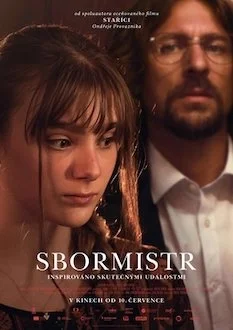Direction: Ondrej Provaznik
Country: Czech Republic / Slovakia
A shattering and cold coming-of-age drama, Broken Voices leaves us petrified with a well-rendered tale that, though difficult to watch, feels painfully real. Writer-director Ondrej Provaznik avoids dramatic excess, relying on a simple yet potent script drawn from the Bambini di Praga case, in which a choirmaster was convicted of sexually abusing minor girls between 1984 and 2004.
The film centers on Karolina (promising debut from Katerina Falbrová), a talented 13-year-old singer thrilled by the prospect of joining a prestigious girls’ choir on a U.S. tour. Her older sister Lucie (Maya Kintera), 15, is also in the choir but has been acting increasingly withdrawn. She was once a favorite of the sly choirmaster, Vitek Mácha (Juraj Loj).
We can sense where the story is headed, yet Broken Voices becomes a quiet, devastating plunge, magnificently carried by its actors. It’s a heartbreaking, deeply impactful, and merciless film, elevated by a persistent undercurrent of harrowing anxiety. Hitting hard even in moments that momentarily lighten the tone, Broken Voices is the antithesis of a feel-good movie—something that fractures from the inside and leaves a long-lasting bruise.












